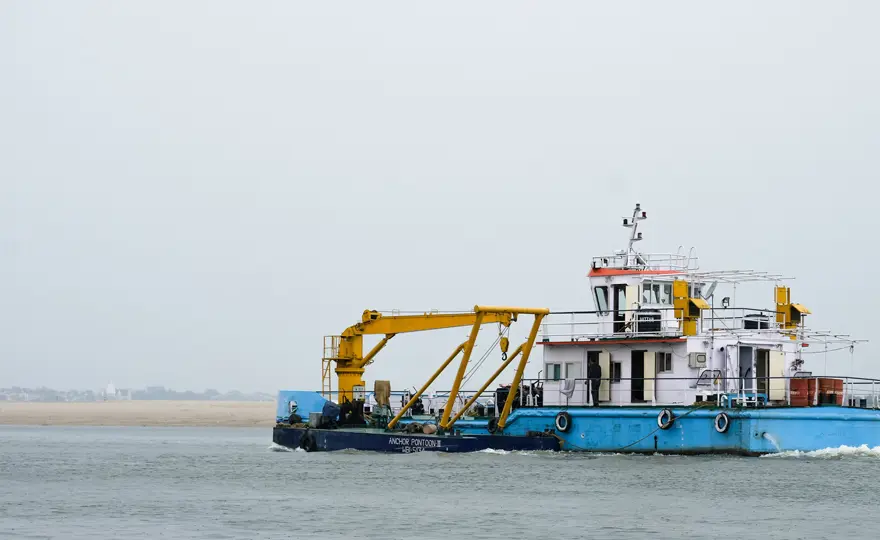ClientEarth Communications
24th September 2020


EU funds that support the fishing and maritime sectors sound like a good idea. But when taxpayers’ money is used to prop up environmentally and economically unsustainable fishing, it’s time these harmful subsidies come to an end.
The European Maritime and Fisheries Fund (EMFF) is granted by the EU on a seven-year basis and is designed to help fishers, European countries and other interested parties reach economic, social and environmentally sustainable goals to protect the marine environment.
But subsidies can become harmful if used to keep an unsustainable number of fishers in the sector, disregarding depleted fish stocks. In the Mediterranean, more than 90% of stocks were subject to overfishing in 2017, while almost 40% were subject to overfishing in the Northeast Atlantic in 2018.
If misused, public money can support overfishing by helping to offset the costs of vessel fuel, upgrades, port renovations, and other expenses, which enable fishers to travel further and longer than they would have otherwise.
Funding these practices also takes money away from crucial activities like protecting the marine environment, better control of fishing activities or improving data collection of fish stocks.
Public money should be invested to ensure EU fisheries thrive and are environmentally sustainable in the long-term, providing environmental, social and economic benefits across the industry, to coastal communities and society as a whole.
Not all fisheries subsidies are harmful. Some might help artisanal fishers survive a lean season, and those should be maintained. But the use of these subsidies become particularly worrying when 80% of the EU fund goes to large-scale fishers who have the biggest impact on fish stocks and marine ecosystems.
EU decision-makers and EU countries have a responsibility to spend public funds in a way that best serves the interests of our common marine environment and benefits the fisheries sector, in particular small-scale fishers and coastal communities.
The harmful use of subsidies was banned in 2004, but there is now a risk of these activities being reintroduced in the next 2021-2027 funding cycle. Several members of the European Parliament and EU countries have proposed including them in the next EMFF framework – scheduled to be voted on by the end of 2020.
Alongside our partners, our lawyers have called on the EU institutions involved in the negotiations of the next EMFF to take action to make sure the public’s money is not used to the detriment of the fishing industry.
In July, we wrote to the German Presidency of the Council of the EU, urging it to adopt a future-orientated EMFF that supports the environmental and climate goals committed to under the EU Green Deal.
We argue that the post-2020 EMFF should focus on more selective fishing as well as improving management and monitoring tools. Financial aid should serve the long-term conservation of fish stocks, which directly benefits fishers – without contributing to overfishing. This would help to increase the fisheries sector’s resilience against potential crises and secure long-term returns.
We are alarmed to see that instead of increasing environmentally friendly projects, some countries and Members of the European Parliament are pushing for the reintroduction of harmful subsidies such as capacity enhancing measures, or money for the first acquisition of vessels. If approved, these subsidies go against the declared political will and urgent need to tackle overfishing.
In contrast to the other EU institutions, the European Commission has always been against subsidies for the construction of fishing vessels. The Commission has always been very clear that aid to stop fishing activities permanently or temporarily, or that goes toward the modernisation of fishing vessels – both of which can be very harmful subsidies – can only be included if very strict conditions are agreed during the negotiations.
The European Commission’s position to approve these subsidies only when they meet certain criteria is a welcome step in the right direction.
However, if Members of the European Parliament and EU countries are successful in reintroducing harmful subsidies into the post-2020 EMFF, this would not only contradict the EU’s Green Deal obligations, but go against the global community’s commitment to end overfishing and eliminate harmful fisheries subsidies.
EU funds should be used to build a more resilient and sustainable fishing industry, which balances the needs of both people and nature, not used to reinstate a system that was outlawed more than 15 years ago.